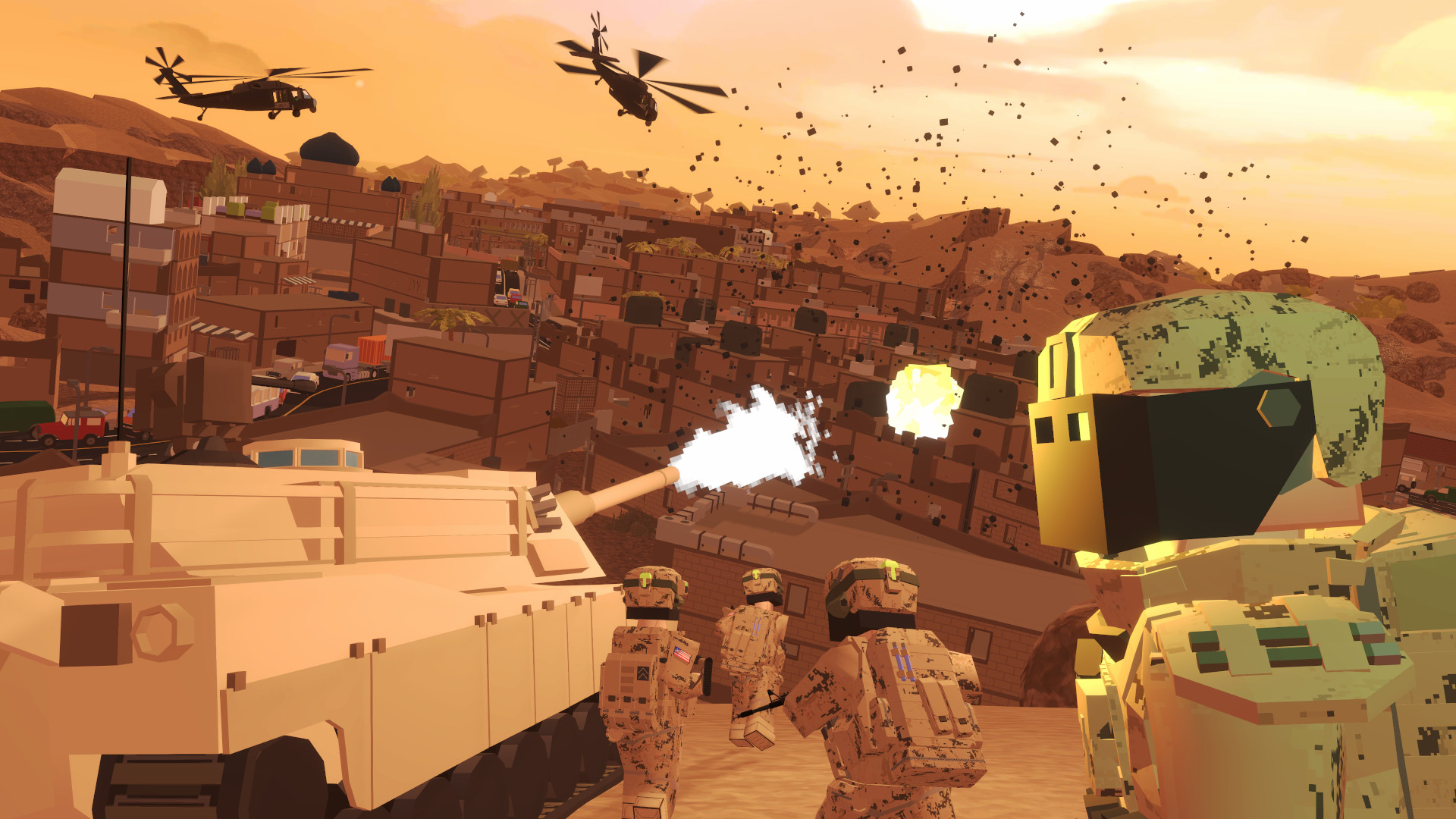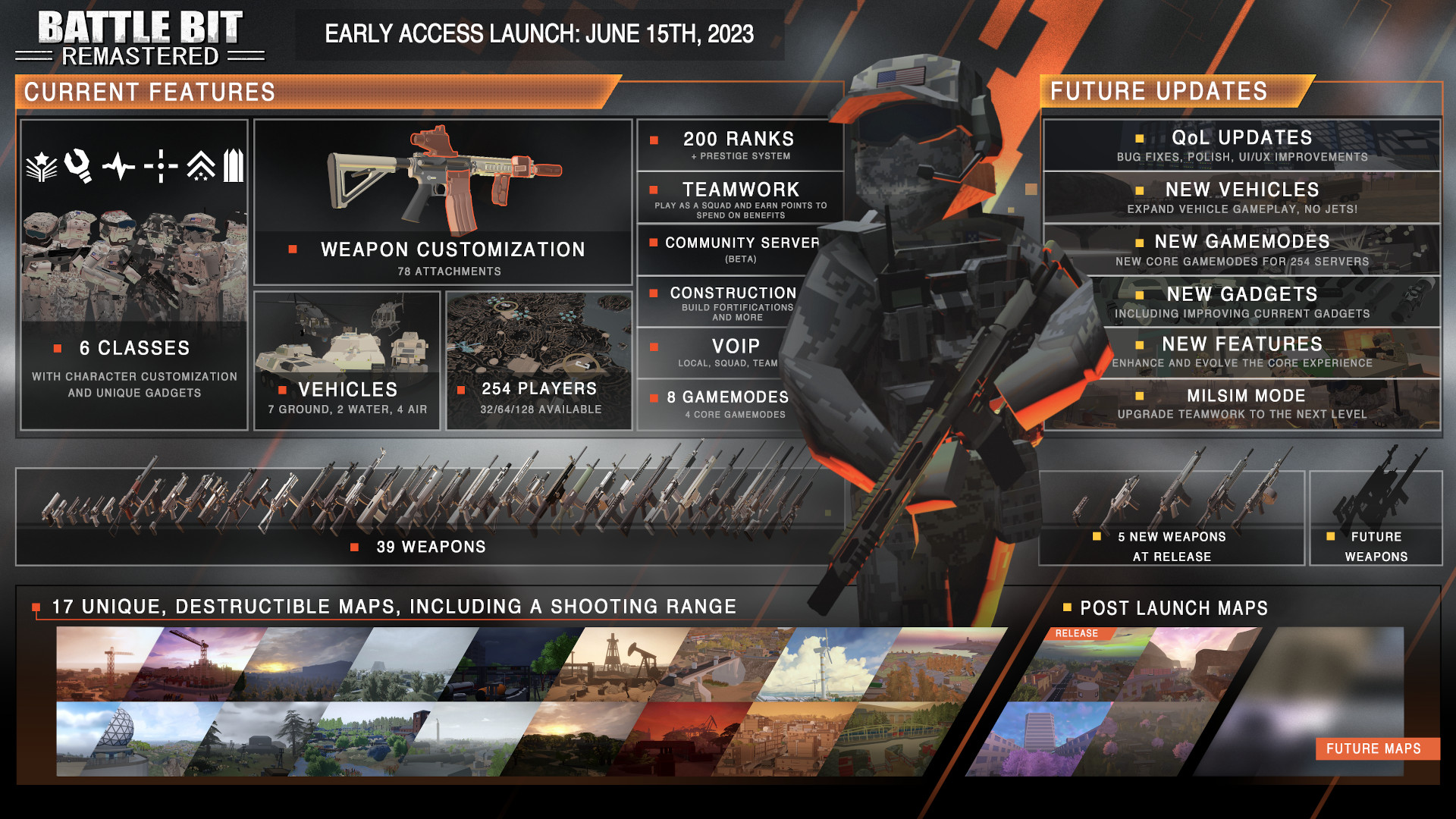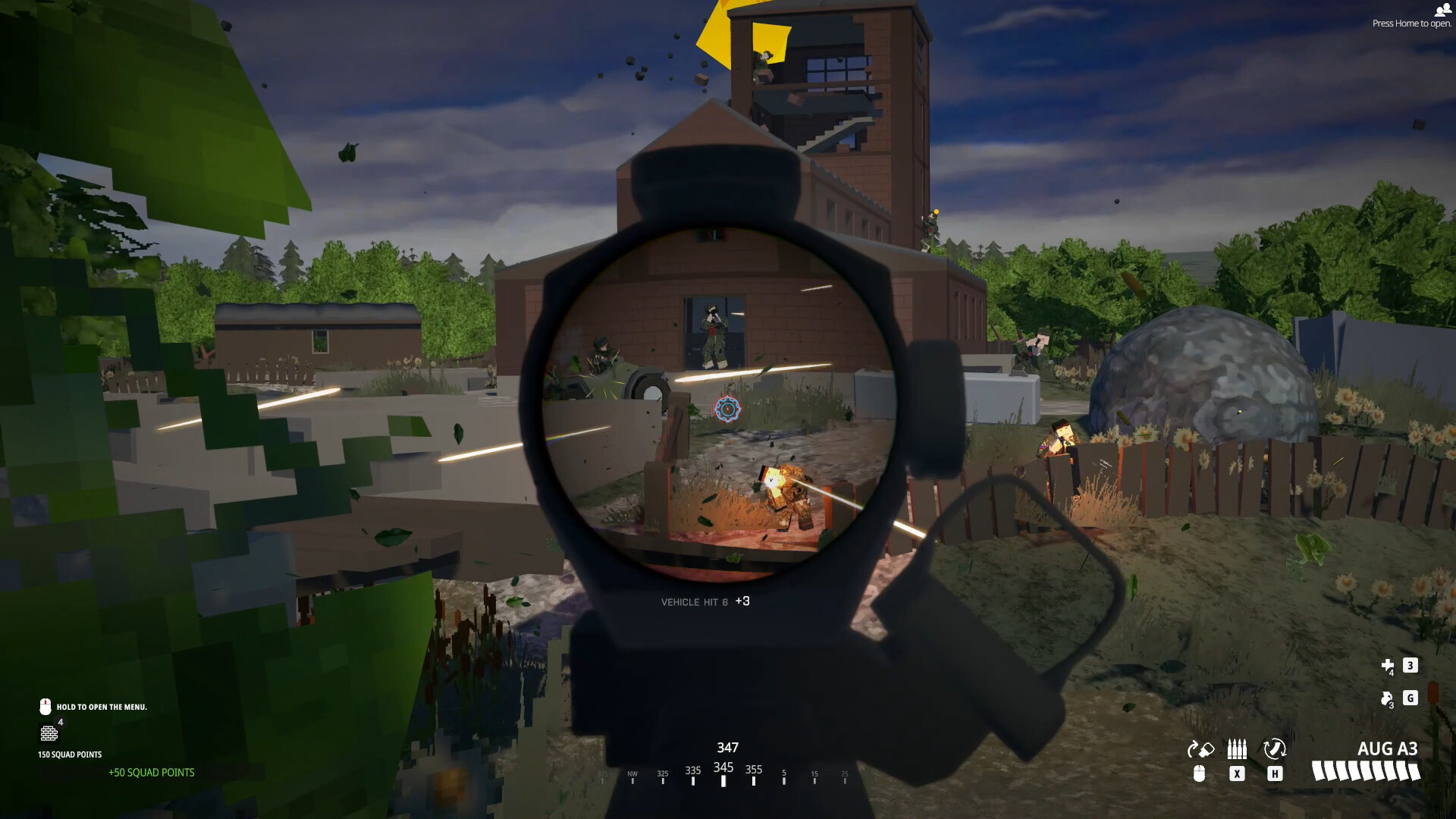
In a year that has repeatedly shown us the dark side of the free-to-play ecosystem, I can't think of a better time for BattleBit Remastered to appear on Steam and instantly steal the spotlight. The $15, 254-player FPS made by four people has been a top seller on the platform since it released in early access a week ago, managing to outperform the most popular games on Steam and even Starfield preorders.
Again, for emphasis: An indie FPS that moves like Battlefield, behaves like hardcore milsim Squad, and looks like Roblox is dominating Steam. Man, PC gaming is fun.
BattleBit is an interesting case, though, even compared to other Steam success stories. For one, BattleBit is doing battle in the most competitive genre in gaming. Usually when I hear about an indie game blowing up the charts, it's in a genre that isn't constantly overcrowded—there's a seemingly endless appetite for new ways to survive with friends or scare the pants off each other. It's a lot harder for an FPS to stand out when there's no shortage of fun, well-supported, free shooters. And yet here is BattleBit, charging $15 for admission and making more money on Steam than Call of Duty.
It's tempting to think that BattleBit is selling well despite foregoing a free-to-play model, but I reckon its $15 price tag is actually a huge part of the appeal—or more accurately, that your dollars get you a game that already has tons of stuff in it with no extra monetary strings attached. There's no battle pass, no cosmetic store (though there is a $20 "Supporter Pack" that comes with gun skins), and crucially, a deep well of stuff to unlock purely by playing the game. There's a lot of game here for $15:

- 6 classes
- 39 unlockable guns with 78 total attachments
- Dozens of class-specific gadgets
- Dedicated 254-player servers
- 17 destructible maps (day and night)
- Community server support (in beta)
- Rich VOIP with proximity chat
It seems silly to give a game special credit for being a good value, but the truth is BattleBit feels like a buffet because we've gotten accustomed to leaner, free-er shooters that start with a modest amount of stuff and build on it over time. It's weird to jump straight into a brand new shooter that looks like it's already 10 "seasons" deep in 2023.
Not that free-to-play doesn't have its advantages—it's remarkable how many good games are available for anyone to install and enjoy these days for free. Accessibility gets us in the door, and then battle passes push us to put our money where our mouse is.
But the longer I've played games like Warzone, Valorant, Overwatch 2, or Apex Legends, the more their constant nagging about battle pass buy-ins and overpriced skin bundles has made me feel like a player second and a target first. I've been trying to identify what it is about service games that have been making me uncomfortable lately, and I think it's this increasingly speculative relationship with their futures: we do, at least in some small way, treat battle passes and cosmetic bundles as investments.

I'm sick of games that glare at me with dollar signs in their eyes from the moment I press play.
We're conditioned to invest, both financially and emotionally, not only in what a game is right now, but what it will be in a year. We cling to roadmaps like lifeboats and wield Reddit threads as weapons of sentiment for or against the developers we've hitched our wagons to. It's a fuzzy parasocial relationship that only gets less healthy the more money is wrapped up in it. I'm sick of games that glare at me with dollar signs in their eyes from the moment I press play.
Multiplayer FPS fans with the same service-game malaise may find BattleBit to be the perfect palette cleanser. It also helps that it's very fun. The blocky characters and low-detail environments do not prepare you for how well-tuned and balanced it is.
It's also surprisingly intense for a shooter lacking graphic violence or overwhelming audio, which you can mostly chalk up to the impromptu roleplay that robust proximity chat inspires—most of your teammates will talk to you when you talk to them, and if they're really getting into it, they'll yell for medics with genuine conviction or belt out a rousing speech before rushing into gunfire. It's the same environment of (usually) good-faith, impromptu participation that makes Squad and Foxhole often more social games than competitive.
BattleBit has echoes of what Eric Barone did with Stardew Valley: a small game that punches above its weight and wins people over with unexpected depth and quality. Like Stardew, BattleBit's prior anonymity worked in its favor. Having zero expectations for a thing makes us kinder about what it does well and forgiving of what it sucks at, like how I've yet to mention that BattleBit's guns sound like you're shooting globs of wet sand, or how hit registration isn't as consistent as Battlefield or Warzone, or how some buildings that look like they should be destructible aren't. Hey, it's early access. That's more than you can say for some bigger games that launch without features you'd usually expect.
And unlike free-to-play games whose perceived health are in constant flux with their latest updates, I'm not really worried about BattleBit's future. If developer OkiDoki Games delivers all of the maps, guns, and modes it's planning to have in free updates, that's great, but even if it doesn't, I've certainly had my $15 of fun.







